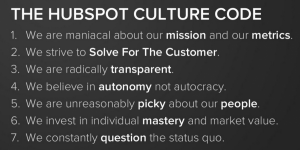Trust is an important word in the world of eCommerce. Any successful retailer would argue that it’s the only eCommerce blueprint you’ll ever need. The moment you lose trust it’s almost impossible to get it back. It takes months and years to build a stellar reputation and only minutes for destroying; just ask United Airlines.
So how do you keep your online clientele from losing trust in your eCommerce business?
Balancing Speed with Perfectionism
The number one reason why so many online shoppers lose trust in a store is because their product isn’t good enough. Of course, you can’t spend the rest of the year perfecting a product before release. Perfection is impossible, but you still need to reach a certain standard.
First of all, not meeting the expectations of your target audience is a big problem. Sometimes this is because of a poor product and sometimes it’s because you never knew what your audience wanted in the beginning. It all goes back to consumer research and figuring out what they expect.
And the only way to deal with this is to ask. Reach out to your target market, not just family and friends who’re helping. Enhance that information by considering what your biggest competitors are doing. Don’t try to reinvent the wheel. Focus on what they do well. Do it better. Then find the flaws. Rectify them.
Make Your Reputation through Negative Experiences
Brands are made and destroyed through negative customer experiences. These will challenge your eCommerce business on a frequent basis. So how do you go about maintaining the trust of the majority? Obviously, you need to learn from negative reviews and feedback.
But the focus must not be on the individual complainer but on the audience watching. Here sharing really is caring in business. Let’s take a look at an example.
Store A has received a nasty Facebook post on their page about how their product arrived with a broken part. Apologizing and sending out a replacement only scratches the surface of what you need to do. You need to go the extra mile. Don’t just offer to send them a replacement product. Give them a discount on future products.
Even if that customer refuses their offer or starts verbally abusing Store A, everyone watching will see that Store A cares about its customers. That’s what’s important. They know that if something goes wrong they can trust Store A to have their back.
Be Careful When Making Promises – Even When It’s Good for Marketing
The eCommerce business is all about exposure. Businesses are not only sharing resources they’re sharing trends. Whether it’s offering to donate to a certain cause, as was the case with the Ice Bucket Challenge, or trying to involve yourself with a current event, like the 2016 Presidential Election, remember that you must follow through on these promises.
More than once brands have made the mistake of not keeping their promises. Some brands have reneged on their donations (and gotten caught), whereas other brands have seen their special campaigns delayed by problems.
Before you think something is a good idea make a plan. Sometimes it’s better to keep your mouth shut than it is to involve yourself in something you can’t realistically follow through on.
Cyber Security is a Primary Reason Trust is Lost
These days the number of hack attacks has increased. Yes, criminals are becoming better at attacking major companies, but most victims are individuals and small businesses. Only now are online shoppers starting to wake up to this fact. You must make security one of your main selling points, even if it’s not sexy.
Let’s take a look at a small list of basics you must have in place:
- The latest web security. Your web address should have ‘https’ instead of the old ‘http’ protocol.
- A solid data storage policy where data is maintained and destroyed securely.
- Only asking for the data you need to process a purchase. Don’t ask for more than is needed because this is when people get suspicious.
And crucially this has to be updated regularly. More and more stores are falling victim to hackers simply because they forget about updates.
Last Word – What’s the Key to Preserving Trust?
The key to preserving trust is to create a great product, to avoid making promises you can’t keep, and to know how to not only defend against bad reviews but to go on the offensive.
What do you think is the key to preserving trust?
Digital & Social Articles on Business 2 Community(50)





